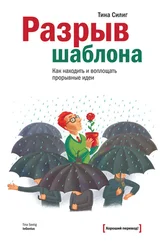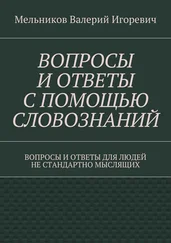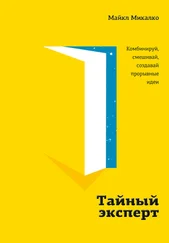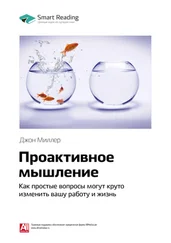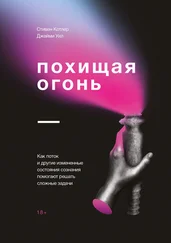2. James T. Dillon. Questioning and Teaching: A Manual of Practice. London: Croom, 1987.
3. Более подробно см.: Эд Кэтмелл, Эми Уоллес. Корпорация гениев. Как управлять командой творческих людей. М.: Альпина Паблишер, 2019.
4. Frank Furedi. «Campuses Are Breaking Apart into ‘Safe Spaces’». Los Angeles Times. January 5, 2017. http://www.latimes.com/opinion/op-ed/la-oe-furedi-safe-space-20170105-story.html.
5. Amy Edmondson. «Psychological Safety and Learning Behavior in Work Teams». Administrative Science Quarterly 44, № 2 (June 1999), 350–383. https://doi.org/10.2307/2666999.
6. Andy Goldstein. «Oral History: C. Chapin Cutler, Conducted for the Center for the History of Electrical Engineering, May 21, 1993». Interview #160, Institute of Electrical and Electronics Engineers, Inc. http://ethw.org/Oral-History: C._Chapin_Cutler.
7. Charles Duhigg. «What Google Learned from Its Quest to Build the Perfect Team». New York Times Magazine. February 25, 2016. https://www.nytimes.com/2016/02/28/magazine/what-google-learned-from-its-quest-to-build-the-perfect-team.html.
4. Кто любит быть неправ?
1. Steve Morgan. «Cybersecurity Ventures Predicts Cybercrime Damages Will Cost the World $6 Trillion Annually by 2021». Cybersecurity Ventures. October 16, 2017. https://cybersecurityventures.com/hackerpocalypse-cybercrime-report-2016/.
2. Meghan Rosen. «Ancient Armored Fish Revises Early History of Jaws». Science News. October 20, 2016. https://www.sciencenews.org/article/ancient-armored-fish-revises-early-history-jaws.
3. Anita L. Tucker and Amy C. Edmondson. «Why Hospitals Don’t Learn from Failures: Organizational and Psychological Dynamics That Inhibit System Change». California Management Review 45. № 2 (Winter 2003), 68.
4. Day 1 — это здание и концепция. Что значит Day 1 — «день первый» — в Amazon? Джефф Безос ответил на этот вопрос в письме акционерам в 1997 году: «Все время быть в состоянии „дня первого“ требует терпеливо экспериментировать, принимать неудачи, сеять семена, защищать ростки и удваивать усилия, когда потребитель доволен. Культура, ставящая потребителя во главу угла, лучше всего создает условия для всего этого».
5. Хотите узнать ответ? Рэндалл Манро, автор книги «А что, если?.. Научные ответы на абсурдные вопросы» (М.: АСТ, Neoclassik, 2015), даже сделал подробные выкладки: https://what-if.xkcd.com/116/(на английском).
6. Michelene T. H. Chi. «Three Types of Conceptual Change: Belief Revision, Mental Model Transformation, and Categorical Shift» / Глава 3 в Stella Vosniadou, ed., International Handbook of Research on Conceptual Change. New York: Routledge, 2008, 67.
7. Michelene T. H. Chi. «Three Types of Conceptual Change: Belief Revision, Mental Model Transformation, and Categorical Shift» / Глава 3 в Stella Vosniadou, ed., International Handbook of Research on Conceptual Change. New York: Routledge, 2008, 78.
8. Tim Harford. «How Being Wrong Can Help Us Get It Right». Financial Times. February 8, 2017. https://www.ft.com/content/8cac0950-ecfc-11e6-930f-061b01e23655.
9. См., например: Eli Pariser. The Filter Bubble: What the Internet Is Hiding from You. New York: Penguin, 2011.
10. Chuck Klosterman. Chuck Klosterman X: A Highly Specific, Defiantly Incomplete History of the Early 21st Century. New York: Penguin, 2017.
11. Chuck Klosterman. But What If We’re Wrong?: Thinking About the Present As If It Were the Past. New York: Penguin, 2016.
12. Roger L. Martin. «My Eureka Moment with Strategy». Harvard Business Review, May 3, 2010.
13. Krista Tippett. «Our Origins and the Weight of Space / стенограмма интервью с Лоуренсом Крауссом». April 11, 2013. https://onbeing.org/programs/lawrence-krauss-our-origins-and-the-weight-of-space/.
5. Зачем стремиться к дискомфорту?
1. Hal Gregersen. «Bursting the CEO Bubble». Harvard Business Review. March — April 2017. https://hbr.org/2017/03/bursting-the-ceo-bubble.
2. Nicole M. Hill and Walter Schneider. «Brain Changes in the Development of Expertise: Neuroanatomical and Neurophysiological Evidence About Skill-Based Adaptations» // K. Anders Ericsson, Neil Charness, Paul J. Feltovich, Robert R. Hoff-man, eds., The Cambridge Handbook of Expertise and Expert Performance. New York: Cambridge, 2006, 653–682.
3. «How Entrepreneurs Come Up with Great Ideas». Wall Street Journal. April 29, 2013. https://www.wsj.com/articles/SB10001424127887324445904578283792526004684.
4. Ioan James. «Henri Poincare (1854–1912)» // Remarkable Mathematicians: From Euler to von Neumann. Cambridge, UK: Cambridge University Press, 2002, 239–240. Наблюдения Пуанкаре, что лучшие идеи приходят, когда отвлекаешься от проблемы, см. также в: Arthur Koestler. The Act of Creation. London: Hutchinson, 1964.
5. Jackson G. Lu, Modupe Akinola, and Malia F. Mason. «‘Switching On’ Creativity: Task Switching Can Increase Creativity by Reducing Cognitive Fixation». Organizational Behavior and Human Decision Processes 139 (2017), 63–75.
6. Meryl Reis Louis. «Surprise and Sense Making: What Newcomers Experience in Entering Unfamiliar Organizational Settings». Administrative Science Quarterly 25, № 2 (June 1980), 226–251.
7. Mason Carpenter, Gerard Sanders, and Hal Gregersen. «Bundling Human Capital with Organizational Context: The Impact of International Assignment Experience on Multinational Firm Performance and CEO Pay». Academy of Management Journal 44, № 3 (2001), 493–512; Mason Carpenter, Gerard Sanders, and Hal Gregersen. «International Assignment Experience at the Top Can Make a Bottom-line Difference». Human Resource Management Journal 39 (2000), 277–285.
8. L. Stroh, M. Mendenhall, J. S. Black, and Hal Gregersen. International Assignments: An Integration of Strategy, Research & Practice. Mahwah, NJ: Lawrence Erlbaum, 2005; J. S. Black, H. B. Gregersen, and M. Mendenhall. Global Assignments: Successfully Expatriating and Repatriating International Managers. San Francisco: Jossey-Bass, 1992.
9. Diane Haithman. «Cirque Noir». Los Angeles Times. December 26, 2004. http://articles.latimes.com/2004/dec/26/entertainment/ca-lepage26.
10. Richard Heller. «Folk Fortune». Forbes. September 4, 2000. https://www.forbes.com/forbes/2000/0904/6606066a.html#647f9396a9fb.
11. Gary Erickson. Raising the Bar: Integrity and Passion in Life and Business; The Story of Clif Bar & Co. New York: Jossey-Bass, 2004.
6. Будете ли вы молчать?
1. Linda Cureton. «If I Want Your Opinion, I Will Give It to You». Jobber Tech Talk. October 20, 2015. http://www.jobbertechtalk.com/if-i-want-your-opinion-i-will-give-it-to-you-by-linda-cureton/.
Читать дальше
Конец ознакомительного отрывка
Купить книгу
![Хэл Грегерсен Вопросы — это ответы [Как искать прорывные идеи и решать сложные проблемы на работе и в жизни] обложка книги](/books/409110/hel-gregersen-voprosy-eto-otvety-kak-iskat-pro-cover.webp)
